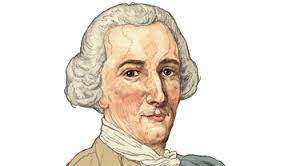Baldassare Galuppi, an Italian composer of the Baroque and early Classical periods, left an indelible mark on the world of music with his innovative compositions and influential contributions. Here are 10 fascinating facts about this remarkable musician:
- Early Life: Galuppi was born on October 18, 1706, in the Venetian Republic. From an early age, he displayed a prodigious talent for music, receiving his initial training from his father, a barber and violinist.
- The “Buranello”: Galuppi earned the nickname “Il Buranello” due to his birthplace on the island of Burano in the Venetian lagoon. This moniker would follow him throughout his life, becoming almost as renowned as his musical prowess.
- Prolific Composer: Over his lifetime, Galuppi composed over 100 operas, along with numerous sacred choral works, symphonies, concertos, and chamber music pieces. His versatility and productivity established him as one of the most prolific composers of his era.
- Influential Operas: Galuppi’s operas were particularly influential in shaping the development of the opera buffa genre, characterized by its light-hearted and comedic elements. His works often featured lively and engaging music, captivating audiences across Europe.
- Traveling Composer: Galuppi’s career took him to various cities across Europe, including London and St. Petersburg, where he served as court composer. His travels allowed him to absorb diverse musical styles and incorporate them into his compositions.
- Collaboration with Carlo Goldoni: Galuppi collaborated with the renowned playwright Carlo Goldoni on several operatic works, including “Il filosofo di campagna” and “Il mondo alla rovescia.” Their partnership produced some of the most celebrated operas of the time.
- Innovative Keyboard Sonatas: Galuppi was a master of keyboard composition, known for his expressive and technically demanding sonatas for harpsichord and piano. His sonatas showcased his inventiveness and virtuosity, earning him acclaim as a keyboard composer of the highest order.
- Impact on Mozart: Galuppi’s music had a profound influence on Wolfgang Amadeus Mozart, who admired the Italian composer’s operatic style and mastery of form. Mozart’s own compositions bear traces of Galuppi’s influence, particularly in his operatic works.
- Legacy in St. Petersburg: During his tenure in St. Petersburg, Galuppi played a pivotal role in shaping the Russian musical landscape. He introduced Italian operatic traditions to the Russian court and fostered the development of native Russian composers, leaving a lasting legacy in the country’s musical history.
- Rediscovery and Revival: Despite falling into relative obscurity after his death in 1785, Galuppi’s music experienced a revival in the 20th century, with scholars and performers rediscovering and championing his works. Today, his compositions continue to be studied, performed, and celebrated for their elegance, wit, and enduring musical brilliance.
Baldassare Galuppi’s legacy as a composer, innovator, and musical trailblazer endures, ensuring his rightful place among the great masters of classical music.


Comments are closed